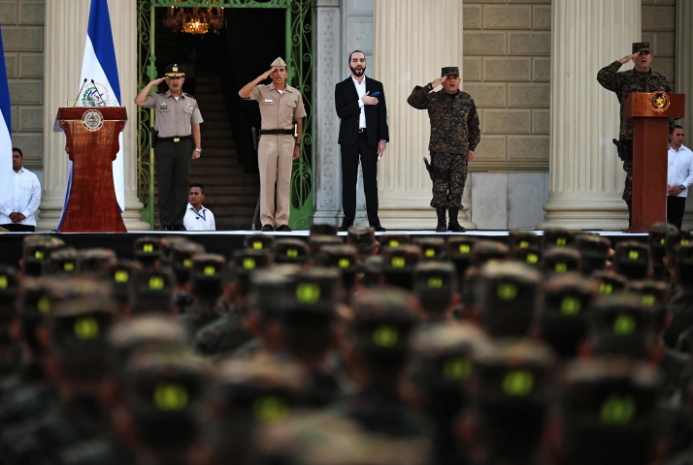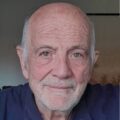It would seem that the war in Eastern Europe, except for the economic crisis impact and the expectations of a “new global order”, is a foreign issue for Latin America. However, certain features in the configuration of the political regime of the aggressor country are not unfamiliar to the region. Indeed, the authoritarian drift of what in its beginnings was an illiberal democracy with a president elected by popular vote and a twisted separation of powers is paired with a sadly already known pattern.
Vitaly Mansky is a Russian filmmaker, though born in Lviv (Ukraine) in 1963, whose “Putin’s Witnesses” released in 2018 is an exceptional documentary to get to know Vladimir Putin in his first year in office in 2000. Shot under the premise of what should be a laudatory exercise of the transition process from Yeltsin to Putin, today it is an exceptional testimony of how an apparent virginal moment is already provided with the seed of disruption. It features images of both politicians showing their daily lives and gives rise to spontaneous and memorable confessions that anticipate a stormy future.
Surprising is a young Putin, an apparent firm convert to the values of democracy, who is torn between the estimation of love for the motherland, which must be above any individual interest, to be served relentlessly, and his awareness that the presidency is temporary, an unmistakable prelude to a later stage in which he returns to being an ordinary citizen. If Putin jokes with Mansky, whom he calls ironic, he does not fail to convey a faint distrust of the president whose ambition is beginning to become apparent.
The filmmaker, who has been living in Riga since 2014, at one point in his life becomes aware that his initial privileged position as a cameraman witnessing the president’s most private movements makes him a hostage of a regime in which he will go from being an opponent to an exile. The rampant greed for power in an environment where institutional control mechanisms are weak, the scenario of insecurity in the streets caused by the Chechen conflict that precipitates the popular demand for a redeemer and a past that shapes an almost broken national identity establish the framework on which part of the drama that Eastern Europe is living today is built.
What has happened in Russia since the beginning of the present century has its correlate in some Latin American countries where some aforementioned aspects are present. The combination of personal ambition, manipulation of institutions to satisfy it, and a relevant initial social support from populations affected by trauma such as ominous insecurity, corruption, economic deterioration, or alienation by the lack of recognition of certain groups, constitute a well-known scenario. Added to this is the common denominator that makes political alternation a practice in disuse.
In Latin America, according to some polls, the initial support in plebiscitary presidential elections by the public opinion that gives silent testimony is something that, as in the Russian case, invariably turns into a situation in which the people end up being held hostage by the performance of the autocrat in power. Sustained by his messianic character of unlimited ambition, he is also accompanied by a faithful and self-interested environment that rallies around him.
The Armed Forces and the security apparatus, the weak co-opted State administration -including the Judiciary-, a sector of the business sector, and a skillful communication policy in the key of publicity form the basic instruments of domination. The result of all these elements is the perpetuation to remain in power at any cost.
Nicolás Maduro, following in the footsteps of his predecessor, Hugo Chávez; and Daniel Ortega are clear examples of this phenomenon. The evidence lies in the way they remain in power by cutting off the opposition and making elections a truculent game. Thus, the Venezuelan and Nicaraguan population has gone from being spectators to being kidnapped in a framework of personalization of power and persecution of anyone who does not support the Bonapartist leader. But the risks of something similar happening in other Latin American countries are present.
If Vladimir Putin in Vitaly Mansky’s documentary did not doubt 22 years ago that leaving the presidency was his natural destiny because he was under democracy’s golden rule of the temporary and limited usufruct of power, what guarantee is there today that Nayib Bukele in El Salvador or Andrés Manuel López Obrador in Mexico will leave power when their mandates end in 2024?
The steps taken by both to subdue institutions that carry out independent control actions, or to change the rules of the game, represent a milestone in the conversion of the respective citizens from witnesses to hostages.
If Bukele has twisted the Judiciary arm by dismissing judges and prosecutors and appointing a Supreme Court that suits him, López Obrador surprises with an electoral reform initiative in which he proposes to undermine the independence and dismantle the National Electoral Institute, whose performance in recent years was exemplary, to contribute to making true his prediction of “continuing to win the games by beating”, increasing the number of hostages at his own pleasure.
Translated from Spanish by Janaína Ruviaro da Silva












